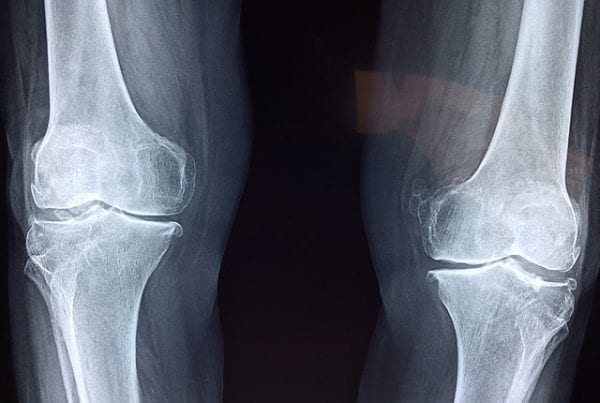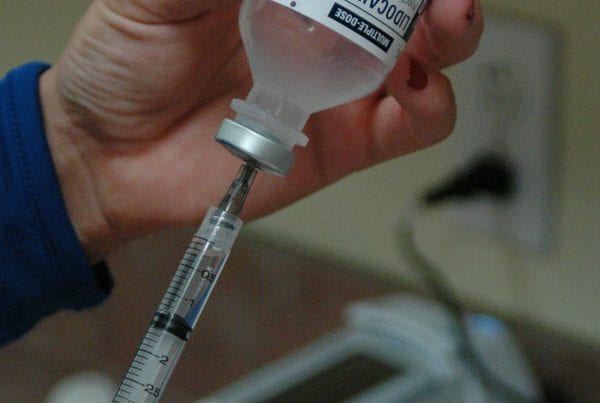Stem cell therapy use has recently risen in a dramatic way, and patients and healthcare providers are maximizing the efficacy of the procedure to treat different conditions. Stem cells offer the best cell therapy approaches for various chronic illnesses such as intractable myofascial pain, musculoskeletal injuries, as well as male and female sexual dysfunctions. Medical research has also shown their efficacy for treating Alzheimer’s Disease, various Cancer types, End-Stage Liver Disease, Autism, and Type 1 Diabetes.
What Are Stem Cells?
Stem cells are unique kinds of human cells that have the ability to develop into many different types of cells, such as muscle and brain cells. They also have the ability to repair or heal damaged tissue.
There are two main kinds of stem cells: embryonic stem cells and adult stem cells. The embryonic type are extracted from unused embryos and are pluripotent in nature – meaning they can develop into more than one cell type. No other cell in the body has this quality. Adult stem cells are derived from fully developed tissues—such as bone marrow, skin, and brain tissue—and typically develop into only certain cell types.
Due to their growth factors and ability to promote tissue healing, researchers believe stem cells may one day become a remedy to devastating conditions such as Alzheimer’s, paralysis, and several other chronic conditions. There is also hope that the ongoing studies on stem cells can help to increase our understanding of how illnesses occur in the human body and to generate healthy cells that will replace those that are diseased.
Clinical Evidence of Stem Cell Therapy for Various Conditions
As a pioneer in stem cell research, the American Academy of Integrative Cell Therapy, AAICT, sets a high standard for the regenerative medicine industry, and also educates the general public on the important developments in the stem cell-based therapy community. Several clinical studies have been conducted in order to evaluate the efficacy of stem cell therapy for various conditions. Many of these studies are published on the organization’s clinical evidence webpage. They include:
Stem Cell Therapy for Alzheimer’s Disease
Alzheimer’s disease is a condition that is generally associated with strong genetic etiology as well as environmental factors. An individual’s lifestyle can also be a contributing factor in its development. It is a progressive neurological condition which causes the formation of plaque in the brain and leads to the loss of communication between neurons. Its symptoms include memory loss, confusion, incoherence, vision problems, lapses in judgment, social withdrawal, and delusions.
The therapeutic effects of stem cells on Alzheimer’s disease arise from their ability to cause regeneration and substitution of both the cells and tissues themselves. While most other treatments for the condition revolve around the progression of the disease, stem cell therapy is focused on restoring the damaged neurons. The ability to address the root cause of the symptoms makes stem cell therapy a superior option to many other procedures for Alzheimer’s.
Neural stem cells (NSC), embryonic stem cells (ESC), mesenchymal stem cells (MSC), human umbilical mesenchymal stem cells (HUMSC), bone marrow mesenchymal stem cells (BM-MSC) and induced pluripotent stem cells (iPSC) are some of the stem cells therapies used in treating Alzheimer’s disease. The efficacy of these therapies and other stem-based treatments are evident in several preclinical studies done in different rodent species.
Scientists also recorded very encouraging results in several human studies for Alzheimer’s disease treatment. In a human study which was carried out using NSCs, MSCs, BM-MSCs, and HUMSCs, some of the improvements recorded by the participating patients after the treatment include:
- Improved memory
- Enhanced neuronal differentiation
- Promoted survival of newly generated cells
- Restoration of cognitive performance
- Alleviation of the Alzheimer’s disease pathology
- Increased acetylcholine levels
- Microglia activation
- Increased neprilysin expression
These results manifested in varying degrees from different stem cell therapies used. However, the general assessment revealed that using stem cell therapy for Alzheimer’s is quite effective.
Gene Therapy for Alzheimer’s Disease
Apart from cell therapy, gene therapy is another effective procedure for Alzheimer’s disease. Nerve growth factor (NGF) and choline acetyltransferase (ChaT) are some of the gene therapies used. In one of the human studies, the participating patients experienced a significant improvement after undergoing therapy using NGF and ChaT.
Some of the reported results include improved cognitive functions, nicotinic receptor binding, learning and memory performance, and electroencephalography. They also experienced an increase of acetylcholine, cell migration in the entire brain, differentiation into neurons and glial cells.
Mesenchymal Stem Cell (MSC) Therapy for Cancer Treatment
Mesenchymal Stem Cells (MSCs) are adult stem cells that were first discovered from bone marrow by Friedenstein et al. in 1960. However, further studies have shown that MSCs exist in a variety of tissues and has been successfully extracted from several other organs such as the kidney, liver, brain, lungs, muscles, thymus, skin, umbilical cord, fetal tissues, and bone marrow.
MSCs interaction with tumor cells make it an effective tool for cancer treatment. Several studies have documented the potential of this naturally-derived product’s tropism to wounds. It has the potential to support or suppress tumor growth.
In an animal study, the MSCs extracted from bone marrow demonstrated its tropism to tumors by releasing some soluble factors that inhibit lung carcinoma and B16 melanoma growth in mice. This homing potential of MSCs is also evidenced in almost all human cancer cell lines such as ovarian cancer, breast cancer, melanoma, colon cancer, lung cancer, and malignant glioma.
The study also showed that the effect of the MSCs extracted from the umbilical cord was also evident against brain tumors. MSC therapy has been added to the several other stem-based treatment options for cancerous tumors, and this clinical evidence is, so far, being followed closely and utilized by physicians and research community involved in cancer treatment.
Treatment of the End-Stage Liver Disease Using Stem Cell Therapy
Chronic liver injuries are caused by several factors, such as alcohol abuse, use of certain drugs, parasitic infections, and exposure to certain toxic substances. However, regardless of the cause, most liver problems usually progress to liver fibrosis and eventually lead to liver cirrhosis (LC). A condition that is thought to be irreversible, LC is responsible for the impairment of hepatic functions, leading to acute or chronic liver failure.
Liver cirrhosis is a global problem that has been a significant cause of death and a serious concern for the affected individuals and medical practitioners. Transplantation has been the only effective treatment for LC. But unfortunately, the shortage of organs is the biggest challenge for the procedure. This has been a contributing factor to the increasing mortality rate of LC patients on the organ waiting list. Thankfully, stem cell-based therapy has been found to be a promising therapeutic alternative for this chronic condition.
While stem cells of different origins have been investigated for their feasibility and clinical potential for various conditions, human umbilical cord blood stem cells (UCBSCs) is considered the most advantageous for LC treatment.
In a human clinical study that had 51 randomly chosen participant LC patients whose average life expectancy was six months, the efficacy of stem cell therapy was evident as all the patients lived longer six months after undergoing the treatment. In fact, 2 of the 51 patients survived more than five years. Two-thirds of the patients had ascites and more than one-third of them had hepatic encephalopathy.
However, apart from improvement in their survival rate, most of the patients with hepatic encephalopathy, and more than two-thirds of the ascitic patients experienced improved symptoms after undergoing UCBSC therapy. More studies are still required to cover other effectiveness of stem-based therapy LC, such as liver function, aminotransferase, albumin, and bilirubin. However, improvement of quality of life and prolongation of life were two prominent results established from the clinical study.
Stem Cell Therapy for Autism
Autism spectrum disorders (ASD) are common neurodevelopmental conditions that have almost reached epidemic proportions as they affect approximately 1 in 166 children. Autism is characterized by abnormalities in social interactions and communication. According to findings, the disorder is associated with diminished oxygenation in specific parts of the brain and chronic immunologically mediated inflammatory conditions in affected children.
The purpose of stem cell therapy for autism is to decrease inflammation in the affected patients and thereby alleviate symptoms. Specifically, stem cells extracted from the umbilical cord are being used for this purpose.
This is due to the significant correlation between naturally-derived stem cells and inflammation. The stem cells used for therapy are usually collected immediately after birth, making them much more potent than older ones, such as those extracted from bone marrow. They are isolated and administered intravenously by a licensed doctor.
Though still under clinical study, there are strong indications that umbilical cord-derived stem cell therapy is more beneficial than other treatments for autism spectrum disorder. This is because the body does not recognize it as foreign, which creates a minimal risk for rejection. Also, these studies have recorded more significant effects on the symptoms of autism when compared to other options such as anti-inflammatory, anti-biotic, and hyperbaric treatments.
Reversal of Type 1 Diabetes with Cord Blood-Derived Multipotent Stem Cell Therapy
Type 1 diabetes (T1D) causes autoimmune destruction of pancreatic islet cells and reduces the ability to regulate glucose in the blood. This usually leads to poor circulation, strokes, heart disease, infection, kidney failure, and in most cases, premature death. Insulin injection has been the most utilized option for type 1 diabetes patients.
Every day, millions of these patients take insulin injections to survive. However, these injections only help patients control blood sugar, but do nothing to address the underlying T cell-mediated autoimmune aspect of the condition. This creates a need for more effective treatment options for the condition.
Recent findings have shown that mesenchymal stem cells and human cord blood-derived stem cells can help alter immune function and improve markers of T1D. This is due to the ability of these two particular cells to modulate immune activity.
In a 2010 human clinical study that had participants with a median age of 29 years and median diabetic history of 8 years, it was recorded that patients experienced significant improvement after undergoing the treatment using human cord blood-derived multipotent stem cells (CB-SCs). The exact procedure for the study was stem cell educator therapy, in which a patient’s blood is circulated through a closed-loop system that separates lymphocytes (white blood cell) from the whole blood.
From the study results, the effect of stem cell therapy was evident as the participants were able to achieve improved metabolic control and experienced significantly reduced autoimmunity that lasted for several months after the single treatment.
Limitations of the Clinical Studies
Generally, all the studies agree that stem cell therapy is a promising treatment for each of the conditions treated in clinical studies. They all recognize the regenerative power of the stem cell types used in the studies such as mesenchymal stem cells and human cord blood stem cells used for the therapy.
However, just like every new medical procedure, there are some limitations which require that more research be carried out. Many of these therapies are still in the early stages of experimentation. It is necessary for a thorough medical history to be carried out and for standard protocol to be observed before application.
How Exactly Does Stem Cell Therapy Work?
Aging and prolonged wounds are associated with dysfunction in certain tissues and organs in the body. Stem cell therapy makes use of different kinds of cells to help the body repair damaged tissue. The treatment will be administered to target the root cause of the condition and cause the body to self-heal.
Stem cell therapy is a safer, more effective, and more natural non-surgical treatment that is completed under a few hours. It is an outpatient procedure that does not require taking a break from work, as you can resume your normal activities right after the treatment. Being an injectable procedure, the only common side effects are mild discomfort, redness, swelling, or bruising at the injection site. Any of these should not last beyond 12 to 24 hours.
How Modern Therapy Can Help
At Modern Therapy MD, we have a team of medical experts who specialize in health management services. We help adult men and women improve their health and quality of life by using the latest technology in modern healthcare to provide our patients with the best treatment. Our services include testosterone treatment, human growth hormone treatments, menopause and other medical treatments, including Stem Cell Therapy. You can schedule an appointment with us today for the best stem cell therapy by filling out this contact form.
Sources
https://aaict.org/wp-content/uploads/2018/08/Alzheimers-stem-cell-therapy-2014.pdf
https://www.news-medical.net/health/Stem-Cell-Therapy-for-Alzheimers.aspx
https://aaict.org/wp-content/uploads/2018/08/MSCs-in-treating-cancer-2015.pdf
https://www.hindawi.com/journals/bmri/2019/2820853/
https://aaict.org/wp-content/uploads/2018/08/stem-cell-end-stage-liver-disease.pdf
https://www.hindawi.com/journals/cjgh/2018/4197857/
https://www.umassmed.edu/AutismRITA-T/blog/blog-posts/2018/2019/autism-and-stem-cell-therapy/
https://aaict.org/wp-content/uploads/2018/08/Diabetes-type-1-reversal-2012-stem-cell-educator.pdf
https://aaict.org/wp-content/uploads/2018/08/HUCT-in-chronic-spinal-cord-injury-2013.pdf
https://clinicaltrials.gov/ct2/show/NCT03979742



